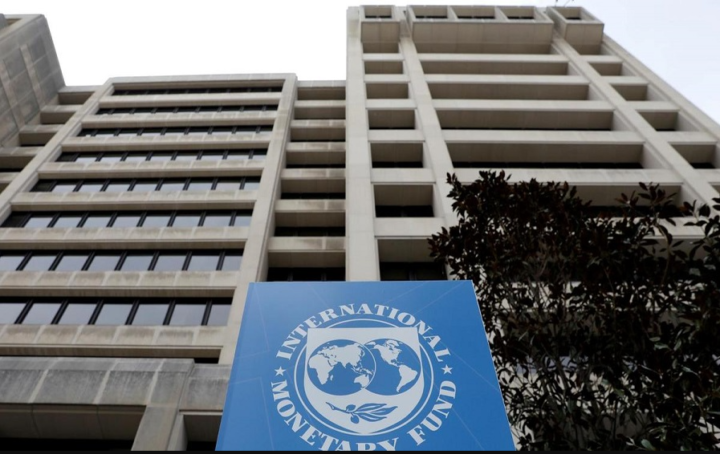The International Monetary Fund (IMF) has pointed out that the economic deceleration in China will have the most significant repercussions on African oil-exporting nations. This slowdown in the Chinese economy is expected to significantly affect the economic prospects of countries in Sub-Saharan Africa, with oil-dependent nations feeling the brunt of the impact.
The IMF’s analysis underscores the close connection between China’s economic health and the fortunes of Sub-Saharan Africa. It reveals that a mere one-percentage-point decrease in China’s real Gross Domestic Product (GDP) growth leads to an approximately 0.25 percentage-point decline in total GDP growth across Sub-Saharan Africa within a year. This relationship is particularly pronounced in the case of oil-exporting nations.
It’s essential to recognize that China’s economic growth has been on a declining trajectory in recent years. Several factors have contributed to this slowdown, including a property market downturn and the far-reaching impacts of the COVID-19 pandemic. Projections indicate that China’s annual growth is likely to hover around 4% over the remainder of this decade, a significant drop from the remarkable 7% growth it experienced in the decade preceding the pandemic.

The IMF’s assessment highlights that the adverse consequences of China’s economic slowdown on the Sub-Saharan African region are primarily linked to the export of commodities, particularly oil. China serves as a substantial export partner for Sub-Saharan Africa, accounting for approximately one-fifth of the region’s total exports.
To mitigate the adverse impacts of this economic interdependence, countries in the region are being urged to explore alternative avenues for economic growth. The IMF recommends that Sub-Saharan African nations should focus on bolstering intra-African trade and investing more in infrastructure development and human capital.
Consequently, the IMF is advocating for Sub-Saharan African countries to prepare themselves for a scenario in which there is a decreased demand for their exports and reduced economic engagement with China. Such preparedness would involve diversifying their economies and reducing their overreliance on a single major trading partner.
Furthermore, the IMF underscores that nearly half of the public debt in Sub-Saharan Africa consists of commercial borrowing, which often carries higher interest rates. China currently holds approximately 6% of Sub-Saharan Africa’s sovereign debt, with a significant concentration in countries such as Angola, Kenya, Zambia, Cameroon, and Nigeria. However, the IMF clarifies that China’s debt holdings have not been the primary driver of the region’s increased public debt over the past 15 years.
In light of these economic dynamics, the IMF underscores the importance of leveraging the African Continental Free Trade Area (AfCFTA) to foster greater economic resilience and growth on the continent. The AfCFTA has the potential to significantly impact the trajectory of intracontinental trade. If effectively implemented, it could lead to a 53% increase in intra-African trade, transforming previous trade barriers into new economic opportunities.
In May 2023, IMF Chief Kristalina Georgieva emphasized that countries in Sub-Saharan Africa should focus on reducing trade barriers, enhancing regional supply chains, diversifying their economies, and prioritizing job creation for the youth to ensure the success of the AfCFTA. This entails implementing policies that are conducive to maximizing the advantages presented by the AfCFTA.
One of the key advantages of the AfCFTA, as highlighted by the IMF, is that it can lead to a reduction in the concentration of African economies’ export destinations. This is particularly beneficial for countries that currently have a relatively high concentration of exports. Diversifying export destinations can enhance economic resilience, making the region less vulnerable to economic fluctuations in specific partner countries, such as China.
In summary, the IMF’s analysis underscores the intricate relationship between China’s economic performance and Sub-Saharan Africa’s economic prospects. While China’s economic slowdown presents challenges, it also offers an opportunity for African nations to rethink their economic strategies and bolster their resilience through enhanced intra-African trade, infrastructure development, and diversification of their economies. The successful implementation of the AfCFTA can serve as a pivotal step in achieving these objectives, ultimately contributing to a more prosperous and resilient Sub-Saharan Africa.
Support InfoStride News' Credible Journalism: Only credible journalism can guarantee a fair, accountable and transparent society, including democracy and government. It involves a lot of efforts and money. We need your support. Click here to Donate
